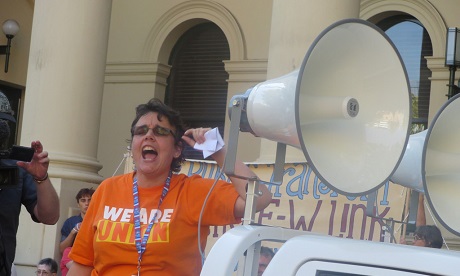Some Australian trade unions want to restrict the right of religious organisations to decide who to employ according to candidates’ responses to Church teaching on sexuality.
Under Australian federal and state laws, some religious organisations are exempt from laws that protect workers from losing their jobs as a result of their gender identity or sexuality. Schools are among these organisations.
The unions have made it clear that although some roles religious organisations want to fill will require candidates to adhere to church teaching (for example, school religious education teachers), the same adherence to church teaching is not necessary for the school cleaner.
Wil Stracke, a member of the Victorian Trades Hall Council which proposed the new motion, said union members hoped the religious exemptions to discrimination laws would be “narrowed significantly so that they can only apply when it’s an inherent requirement of the job.
” We’ll work on changing those laws and advocating for that change.”
Stracke says there are over 200,000 jobs in Australia where workers could be legally fired if they came out.
Nearly 40 percent of LGBTIQ workers were not “out at work”, she says.
“That means LGBTIQ workers are forced into the situation where, for example, taking carers’ leave to look after their sick partner means they risk being sacked.”
Under the current rules, simply supporting views that are contrary to church teaching can cause people to lose their jobs.
One Australian woman says she lost her job after someone discovered on social media that she supported same-sex marriage. However, the woman says her job did not involve teaching about gender or sexuality.
“I’d been careful not to speak about sexuality because I knew it would close doors,” she says.
“It turned out someone had found out I was speaking, looked me up on Facebook, found I’d changed my profile picture to a rainbow when the US supreme court passed marriage equality about a year before, and complained to the bishop of the diocese.”
Source
- Crux Now
- The Guardian
- Image: Flickr
